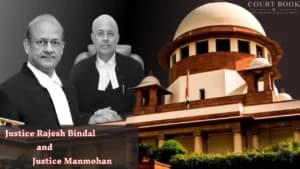In a judgment pronounced on Friday, a Supreme Court Bench comprising Justice Satish Chandra Sharma and Justice Vipul M. Pancholi upheld the auction of agricultural land in Perambalur, bringing a two-decade-long dispute to a close. The judges were clear that once an auction is completed under the Tamil Nadu Revenue Recovery Act, any challenge must be filed within 30 days a window that the appellant, Kolanjiammal, had admittedly missed.
the atmosphere was steady and almost weary, as both sides repeated arguments that the case had carried for years.
Background
The dispute traces back to the early 1970s, when late Ramaswamy Udayar successfully bid for arrack shops but later defaulted on payments. This default eventually resulted in a 1987 ex-parte decree, fixing dues at just over ₹56,000. The widow said she had no knowledge of the decree. Years later, in 2005, the district authorities issued auction notices to recover the dues along with accumulated interest.
Despite interim orders and part payments made during the High Court proceedings, the property under Patta Nos. 786 and 789 was auctioned on 29 July 2005 and later confirmed in July 2008.
When the High Court dismissed her writ petitions and a later review plea, the widow approached the Supreme Court.
Court's Observations
The Bench spent considerable time examining one fundamental issue:
Can a person bypass statutory remedies and directly challenge an auction through writ jurisdiction, years later?
Justice Pancholi, reading the judgment, said the statutory framework was “complete and mandatory,” leaving no ambiguity about timelines. The bench observed,
“Sections 37-A and 38 provide a self-contained mechanism… both require action within 30 days from the date of sale.”
The Court also disagreed with the argument that the High Court’s interim stay prevented her from filing the statutory application. The judges clarified that the stay only halted confirmation of the sale, not the auction itself.
In a pointed remark, the Bench noted,
“The existence of interim proceedings does not erase the obligation to seek statutory remedy.”
They also cited earlier rulings cautioning courts against lightly interfering with revenue recovery processes meant to protect public funds.
On the argument that the sale was illegal because some amounts had been deposited, the Court said these deposits were made under High Court directions, not under Section 37-A, which requires both deposit and a formal application within 30 days.
The Bench reaffirmed that once a sale is confirmed, rights accrue to the buyer which cannot be undone except in cases of proven fraud something that the appellant could not establish.
Decision
After examining the factual record and statutory requirements, the Supreme Court concluded there was no illegality in either the auction or in the High Court’s refusal to intervene. The Court held:
- The widow did not file a statutory challenge within 30 days.
- The auction on 29.07.2005 and its confirmation on 23.07.2008 followed due procedure.
- Interim orders did not suspend her statutory obligations.
- No fraud or irregularity in the auction was shown.
Accordingly, the Court dismissed the appeal, upholding the Madras High Court’s 2009 and 2011 orders.
The matter ended there with the Bench making it clear that statutory deadlines in revenue recovery proceedings cannot be stretched indefinitely, no matter how sympathetic the circumstances.
Case Title: Kolanjiammal (Dead) through LRs vs. Revenue Divisional Officer, Perambalur District & Others
Case Number:- Civil Appeal No.: 2322 of 2013















